Medically reviewed by Dr. Ramesh Gaddam, M.D. — Written by Sumalatha, D.N.H.E
Table of Contents
ToggleThe common cold is a viral infection that affects your nose and throat. It’s a widespread illness, especially during the colder months.
You might feel a scratchy throat, stuffy nose, or mild fatigue. Though annoying, colds are usually harmless and clear up on their own within a week.
Understanding the symptoms and how it spreads can help you manage it better and prevent passing it on to others. Simple precautions can reduce your risk of catching a cold.
1. Symptoms of Common Cold
Common cold symptoms typically appear gradually over 1 to 3 days after being exposed to the virus.
Primary symptoms include:
- Scratchy or sore throat,
- Sneezing,
- Stuffy or runny nose,
- Coughing,
- Watery eyes, and
- Mucus that drains from the nose to the throat.
Secondary symptoms might involve a mild fever, headaches, muscle aches, tiredness, and a reduced appetite.
While these symptoms can be uncomfortable, they usually improve on their own within a week.
2. Causes and Risk Factors
The common cold is mainly spread through respiratory droplets when an infected person coughs or sneezes.
You can also catch it by touching surfaces where the virus can survive for several hours. Colds are more common during fall and winter.
Young children, especially those in daycare, are at higher risk.
The elderly, pregnant women, and people with chronic illnesses are more vulnerable.
A weakened immune system and exposure to smoking, including secondhand smoke, also increase the risk of catching a cold.
3. Complications

While the common cold is usually mild, it can sometimes lead to complications.
Middle ear infections (otitis media) are common, especially in children.
For those with asthma, a cold can worsen symptoms, making breathing more difficult.
The infection can also spread to the sinuses, leading to sinusitis.
In people with weakened immune systems, a cold may develop into more serious conditions like pneumonia or bronchitis.
These complications may require medical attention to avoid further health issues.
4. Diagnosis
When diagnosing a common cold, your doctor will start by talking with you about your symptoms, how long you’ve had them, and how severe they are.
They will also examine you by looking at your throat, listening to your lungs, and checking for any complications.
They will review your medical history, including recent illnesses, any existing health conditions, and the medications you’re taking.
In rare cases, the doctor might perform tests like a throat swab or nasal swab to rule out other infections.
They will also make sure that your symptoms are not due to the flu, allergies, or other health issues.
5. Treatment and Prevention
Most colds go away on their own within 7 to 10 days.
To feel better, focus on rest, drink plenty of fluids, and use over-the-counter medications for symptom relief.
Popular home remedies like honey, steam inhalation, and saltwater gargles can also help.
Since colds are caused by viruses, antibiotics won’t work.
To prevent colds, wash your hands often, avoid touching your face, manage stress, and stay away from smoke. There’s no vaccine because so many viruses can cause a cold.
6. When to See a Doctor?
While most colds are mild, there are times when you should see a doctor. If your symptoms worsen or last more than 10 days, it’s important to get checked.
A fever over 101.3°F (38.5°C) that persists for more than three days may signal a more serious infection.
Seek medical help if you experience:
- Shortness of breath
- Wheezing or
- Severe symptoms like a sore throat, headache, or sinus pain.
These could indicate complications that need prompt attention.
7. Common Cold and the Flu
| Symptom | Common Cold | Flu (Influenza) |
|---|---|---|
| Onset | Gradual | Sudden |
| Fever | Rare and mild | Common, often high (100°F or higher) |
| Headache | Rare | Common |
| Body Aches | Mild | Common and can be severe |
| Fatigue | Mild to moderate | Moderate to severe |
| Runny/Stuffy Nose | Common | Sometimes |
| Sore Throat | Common | Sometimes |
| Cough | Mild to moderate | Common, often dry and severe |
| Sneezing | Common | Sometimes |
| Chills | Rare | Common |
| Weakness | Mild | Common and can last weeks |
8. Home Remedies for Common Cold
Honey
Honey is a natural remedy that can soothe a sore throat and reduce coughing.
It has antimicrobial properties and can help coat the throat, providing temporary relief from irritation.
Mix a tablespoon of honey into a cup of warm water or herbal tea.
This can also make it easier to drink fluids, which are important for staying hydrated.
Steam Inhalation
Inhaling steam helps to loosen mucus and ease nasal congestion.
You can do this by placing your face over a bowl of hot water, covering your head with a towel to trap the steam, and breathing deeply.
Alternatively, taking a hot shower can also provide steam relief.
Steam inhalation can make breathing easier and help with sinus congestion.
Saltwater Gargle
Gargling with warm saltwater can reduce throat inflammation and relieve discomfort.
To make a saltwater solution, mix half a teaspoon of salt into a glass of warm water.
Gargle the solution for 30 seconds, then spit it out.
This can help reduce swelling and kill bacteria in the throat.
Ginger Tea
Ginger has natural anti-inflammatory properties that can help soothe a sore throat and reduce congestion.
To make ginger tea, slice fresh ginger and add it to boiling water.
Let it steep for a few minutes, then strain and drink.
Ginger tea can also help boost your immune system and provide comfort when you’re feeling unwell.
Warm Fluids
Drinking warm fluids helps keep you hydrated and can ease congestion.
Herbal teas, broths, and hot water with lemon are good choices.
Warm fluids can help loosen mucus, soothe your throat, and provide comfort.
Avoid caffeinated or alcoholic beverages, as they can dehydrate you.
Chicken Soup
Chicken soup is more than just comfort food. It can help reduce inflammation and congestion while providing essential nutrients.
The warm liquid helps keep you hydrated, and the soup’s steam can help with nasal congestion.
Make sure the soup is not too salty, as excessive salt can contribute to dehydration.
Rest
Getting plenty of rest is crucial for recovery.
Your body needs energy to fight off the infection, so try to get extra sleep and take it easy during the day.
Rest helps your immune system function properly and can reduce the duration and severity of your cold symptoms.
Humidifier
Using a humidifier adds moisture to the air, which can help ease nasal congestion and soothe dry or irritated nasal passages.
Place a humidifier in your room while you sleep or during the day to keep the air moist.
Make sure to clean the humidifier regularly to prevent mold and bacteria growth.
These home remedies can help manage symptoms and make you feel more comfortable while you recover from a common cold.
9. Foods to take
Eating the right foods can help support your recovery from a common cold and ease symptoms. Here are some foods that can be beneficial:
Chicken Soup
Chicken soup is not only comforting but also helps with hydration and provides essential nutrients. It can reduce inflammation, ease congestion, and help soothe a sore throat. The warm liquid helps to keep you hydrated and the steam can ease nasal congestion.
Citrus Fruits

Citrus fruits like oranges, lemons, and grapefruits are rich in vitamin C, which may help boost your immune system. Vitamin C can support your body’s defense against infections and may help reduce the duration of cold symptoms. Enjoy these fruits fresh or in juices.
Ginger
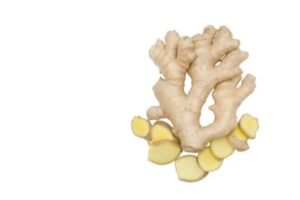
Ginger has natural anti-inflammatory properties that can help soothe a sore throat and reduce congestion. You can add fresh ginger to tea, soups, or stir-fries to benefit from its soothing effects.
Garlic
Garlic has antiviral and antibacterial properties that may help your immune system fight off colds. Adding garlic to your meals can support overall health and may help reduce the severity of cold symptoms.
Honey
Honey is soothing for a sore throat and can help reduce coughing. It has antimicrobial properties and can be added to tea or taken straight to help alleviate throat discomfort.
Yogurt
Yogurt contains probiotics, which are beneficial bacteria that support gut health and boost the immune system. A healthy gut can improve your body’s ability to fight off infections. Opt for plain yogurt without added sugars.
Leafy Greens
Leafy greens like spinach, kale, and Swiss chard are rich in vitamins and minerals that support immune function. They provide antioxidants that can help your body combat the cold virus. Include them in salads, soups, or smoothies.
Hot Broth
Hot broths, such as vegetable or beef broth, help keep you hydrated and provide essential nutrients. They can soothe a sore throat and help clear nasal congestion. Drinking warm broth can be comforting and nourishing when you’re sick.
Spicy Foods
Spicy foods, like those containing chili peppers, can help clear nasal congestion. Capsaicin, the compound in chili peppers, can thin mucus and make it easier to expel. However, if you have a sore throat, spicy foods might cause discomfort.
Bananas
Bananas are gentle on the stomach and easy to digest. They provide energy and nutrients without irritating a sore throat. They’re a good option if you have a reduced appetite or an upset stomach along with your cold.
These foods can support your recovery, soothe symptoms, and provide the nutrients your body needs to fight off the cold virus.
10. Common cold Care Tips
To take care of a common cold, focus on getting plenty of rest and drinking lots of fluids like water, herbal tea, and broth to stay hydrated and help loosen mucus.
Using over-the-counter remedies, such as decongestants or pain relievers, can provide relief from symptoms, but be sure to follow the instructions.
Gargling with warm saltwater can soothe a sore throat, and eating nutritious foods like chicken soup and citrus fruits can support your immune system.
Adding moisture to the air with a humidifier can ease congestion and dry throat.
To avoid spreading germs, wash your hands often, cover your mouth and nose when you cough or sneeze, and stay away from close contact with others.
Keeping your living space clean and practicing good hygiene, like avoiding touching your face, can also help prevent spreading the virus.
11. Myths about Common Cold
There are many myths about the common cold that can lead to confusion. Here are some common misconceptions and the facts to set the record straight:
Myth: You can catch a cold from being cold or wet.
Fact: The common cold is caused by viruses, not cold weather. While cold weather itself doesn’t cause colds, people tend to spend more time indoors during colder months, increasing the chance of being exposed to the virus.
Myth: You only get a cold if you’re exposed to someone who is sick.
Fact: You can catch a cold from touching surfaces contaminated with the virus or through direct contact with an infected person, even if they don’t have visible symptoms.
The virus can spread through respiratory droplets, so close contact with someone who is infected is a common way to catch a cold.
Myth: Antibiotics can cure a cold.
Fact: Antibiotics are effective against bacterial infections, not viruses.
Since the common cold is caused by viruses, antibiotics won’t help and can contribute to antibiotic resistance. Treatment focuses on relieving symptoms and supporting your immune system.
Myth: Vitamin C can prevent or cure a cold.
Fact: While vitamin C supports immune function, there is limited evidence that it prevents colds.
Regular intake of vitamin C might slightly reduce the duration and severity of cold symptoms but isn’t a cure.
Myth: You should stop exercising when you have a cold.
Fact: Light to moderate exercise can be beneficial and may help improve your mood and energy levels when you have a cold.
However, if you have more severe symptoms like a fever or fatigue, it’s best to rest and avoid strenuous activities.
Myth: You can catch a cold from someone who is not sneezing or coughing.
Fact: People with colds can spread the virus even if they’re not showing obvious symptoms like sneezing or coughing.
The virus can be present in respiratory droplets that are not always noticeable, so it’s important to practice good hygiene and avoid close contact with others who are sick.
Myth: Cold weather weakens your immune system.
Fact: Cold weather itself doesn’t weaken your immune system.
However, cold weather can lead to people spending more time indoors where viruses can spread more easily.
Proper nutrition, rest, and hygiene are key to maintaining a strong immune system.
Myth: You can’t get a cold in the summer.
Fact: While colds are more common in the fall and winter, you can get a cold at any time of the year.
Viruses that cause colds are present year-round, and changes in temperature or exposure to infected individuals can increase the likelihood of getting sick.
Understanding these myths and facts can help you better manage and prevent the common cold.
Frequently Asked Questions (FAQs)
Which Foods Are Best for Boosting the Immune System During a Cold?
Foods rich in vitamins and minerals, like citrus fruits, garlic, ginger, and chicken soup, can help boost the immune system during a cold.
These foods provide essential nutrients that support immune function and help reduce cold symptoms.
How Does the Mediterranean Diet Help in Reducing Cold Symptoms?
The Mediterranean diet is rich in fruits, vegetables, whole grains, and healthy fats.
These foods contain antioxidants and anti-inflammatory properties that can help reduce cold symptoms and support overall immune health.
Are There Specific Fruits and Vegetables That Are Particularly Effective for Cold Relief?
Yes, fruits like oranges, berries, and kiwis, and vegetables like spinach, bell peppers, and broccoli are particularly effective for cold relief.
They are high in vitamin C, which can boost the immune system and help reduce the duration of a cold.
What Role Do Antioxidants Play in Reducing Cold Symptoms?
Antioxidants protect the body from harmful free radicals, which can weaken the immune system.
Consuming antioxidant-rich foods, such as berries, nuts, and green tea, can help reduce cold symptoms and speed up recovery.
How Does Zinc Help in Shortening the Duration of a Cold?
Zinc is an essential mineral that supports immune function.
Studies show that taking zinc within 24 hours of the onset of cold symptoms can reduce the duration of the cold and make symptoms less severe.
References:
[1] https://www.healthline.com/health/cold-flu/cold
[2] https://vicks.com/en-us/symptom/cold
[3] https://www.hopkinsmedicine.org/health/conditions-and-diseases/common-cold
[4] https://www.pennmedicine.org/for-patients-and-visitors/patient-information/conditions-treated-a-to-z/common-cold
[5] https://www.mayoclinic.org/diseases-conditions/common-cold/symptoms-causes/syc-20351605
[6] https://my.clevelandclinic.org/health/diseases/12342-common-cold
[7] https://www.medicalnewstoday.com/articles/166606
[8] https://www.cdc.gov/common-cold/about/index.html
Also Read:
Zinc: 28 Best Foods That Are High in Zinc, Benefits, Intake
13 Essential Vitamins: Benefits, Role, List, Dietary Sources
Medically reviewed by Dr. Ramesh Gaddam, M.D.

General Physician, Diabetologist, and Critical Care Specialist.
Related
Discover more from Health Build-Up
Subscribe to get the latest posts sent to your email.
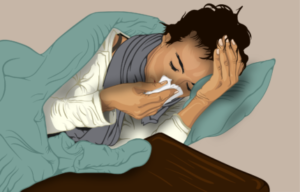


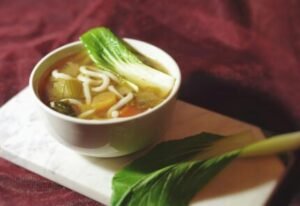
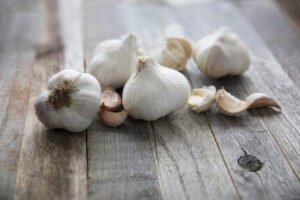

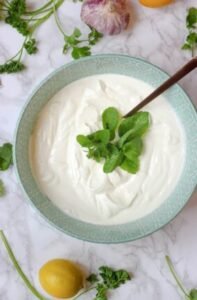




Pingback: Cold Sore : How to get rid of a cold sore in 24 hours
Pingback: Pudina (Mint): Benefits, Nutrition Uses Side Effects, Recipe
Pingback: Saline Nasal Spray: Relief for Congestion and Dryness
Pingback: Body Pains and Fever: Causes, Symptoms, Treatment
Pingback: Home Remedies for Wet Cough: (11 Best Natural Tips)